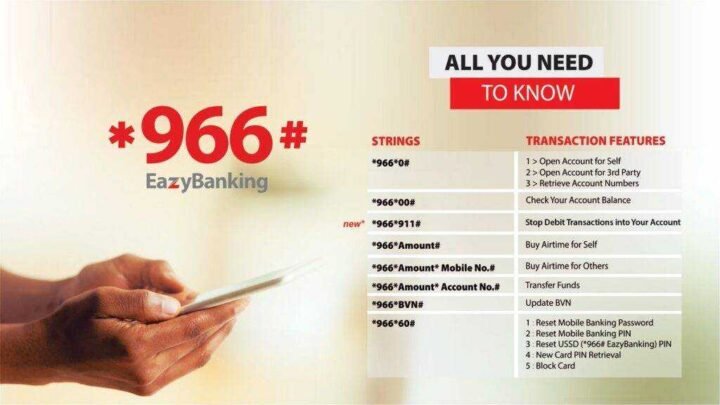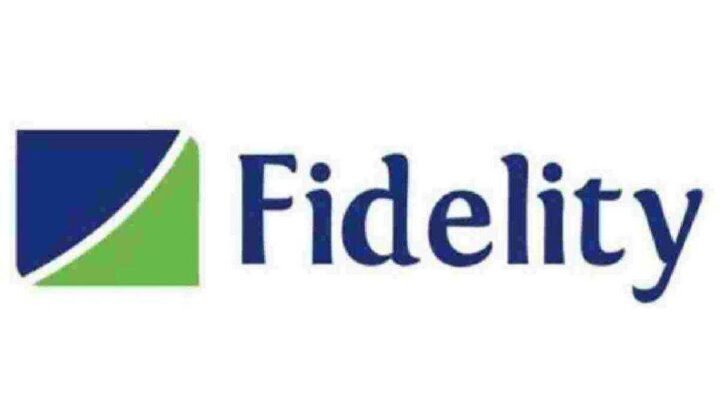Last updated on November 19, 2024
How to shop for a mortgage without hurting your credit? Are you on the exciting journey of shopping for a mortgage to buy your dream home? Congratulations! Owning a home is a significant milestone in life. However, it’s essential to navigate the mortgage shopping process wisely to avoid damaging your precious credit score. In this comprehensive guide, we’ll unveil the secrets of How To Shop For A Mortgage Without Hurting Your Credit.
We’ll explore every aspect, from understanding the impact of credit inquiries to strategies for finding the best mortgage rates and terms. So, fasten your seatbelt, and let’s embark on this credit-friendly mortgage-shopping adventure!
Understanding the Impact of Credit Inquiries
Before we dive into the nitty-gritty of mortgage shopping, let’s clear the air about credit inquiries. Many potential homebuyers worry that multiple credit inquiries will harm their credit scores. While it’s true that inquiries can have an impact, they’re not all created equal.
Soft vs. Hard Inquiries: Know the Difference
- Soft Inquiries: These are inquiries that don’t affect your credit score. They occur when you check your own credit or when lenders perform a preliminary check before pre-approving you for a mortgage. Feel free to shop around and get multiple pre-approvals; it won’t hurt your credit.
- Hard Inquiries: These inquiries can affect your credit score, but the impact is usually minimal. They happen when you formally apply for a mortgage with a lender. Multiple hard inquiries within a short period (typically 14-45 days) for the same purpose are often treated as a single inquiry to minimize credit score damage.
Tip: When shopping for a mortgage, aim to complete your applications within a short time frame to minimize the impact of hard inquiries.
The Credit Score Impact
Now, you might wonder, “How much will a hard inquiry affect my credit score?” On average, a single hard inquiry can ding your score by a few points—usually less than five. While this impact is minor, it’s essential to be mindful, especially if your credit score is on the borderline of qualifying for better mortgage rates.
How To Shop For A Mortgage Without Hurting Your Credit
Here are some tips for how to shop for a mortgage without hurting your credit, so you can get a low rate when you’re ready to buy your new home.
1. Shop with a purpose
Shop around for a mortgage with the best rates, but don’t let your search be too long. Your credit score generally allows for a shopping time frame when shopping for a mortgage. That means multiple requests you make within a certain time period will count as one comprehensive inquiry into your credit for credit scoring purposes. A big hit to your name can temporarily knock a few points off your score.
Depending on the type of credit score used by the lender, this comparison window can take anywhere from 14 to 45 days. Keep your search focused and short to stay safe. Preferably limit it to 14 days.
If you can’t stick to that timeline, don’t panic. The effect of a thorough investigation will wear off over time and is only a small part of your credit score.
2. Get your credit reports and check for errors
Mistakes happen. And when they do, you don’t want to be the last to know about them. Lenders look at specific aspects of your credit history and financial situation to qualify you for a mortgage, so it pays to know what’s in your credit file before applying.
You are entitled to free annual online credit reports from the three major credit bureaus: Equifax, Experian, and TransUnion. Go through them line by line and check for inaccuracies. If you find an error, file a dispute with the appropriate office as soon as possible. This can be done online, by telephone, or by email.
3. Pay your credit cards
If your credit card debt is maxed out, lenders will probably think twice about offering a mortgage because both your credit utilization ratio and your debt-to-income ratio will be high. That’s why it’s a good idea to start paying off those balances before you file any mortgage applications.
Make more than the minimum payments on your cards each month. Not only will this increase your creditworthiness and reduce your overall debt burden, but it will also save you money on interest and show potential lenders that you are serious about paying back what you have borrowed.
4. Get Prequalified
If possible, prequalify for a mortgage before you even buy a home. Prequalification does not require a hard credit check. It is a lender’s estimate of how much home you can afford based on the financial information you provide.
Once you’ve narrowed down your housing options and checked your own credit reports for errors, you can take the next step and get pre-approved, which will affect your credit score.
5. Stop Requesting New Credits
If you’re moving to a new house, you might also be interested in a new car for your driveway and furniture to fill your rooms, but wait until you get that mortgage before applying for new credit cards and car loans. You want your credit reports to look as clean as possible when you sign up, and many new questions can raise red flags for lenders.
While delaying credit card applications can be a good move, it’s generally not a good idea to close all your paid cards at once. Doing so can increase your credit utilization ratio and make your credit history appear shorter and less varied, which can also affect your score. Instead, plan to keep your accounts open, at least until your mortgage is approved.
6. Save aggressively
You’re now focused on getting a mortgage but don’t forget to protect your credit score after you’ve been approved. Once you make a down payment on your new home, your savings can make a dent and you may be tempted to rely more on credit. In the short term, that may be fine, but making it a long-term habit can seriously hurt your credit score.
If your savings account is running low, consider cutting expenses whenever possible and starting an emergency fund. This way you don’t have to use your credit card as a crutch in an emergency. Protecting your credit score will also make it easier for you to apply for mortgages and other lines of credit in the future.
Strategies for Mortgage Shopping Without Harming Your Credit
Now that we’ve clarified the credit inquiry conundrum, let’s delve into actionable strategies for shopping for a mortgage without hurting your credit.
Check Your Credit Report
The first step is to obtain a copy of your credit report from all three major credit bureaus—Experian, Equifax, and TransUnion. You can access these reports for free once a year through AnnualCreditReport.com. Review them carefully for errors or discrepancies that could be dragging your score down. Dispute any inaccuracies to boost your credit profile.
Improve Your Credit Score
If your credit score needs a boost, take proactive steps to improve it before applying for a mortgage. Here are some quick tips:
- Pay bills on time to establish a history of responsible credit use.
- Reduce credit card balances to below 30% of your credit limit.
- Avoid opening new credit accounts before applying for a mortgage.
- Keep old, unused accounts open to maintain a longer credit history.
Get Pre-Approved
Getting pre-approved for a mortgage is a smart move. It not only gives you a clear picture of how much home you can afford but also minimizes the risk of damaging your credit. Remember, pre-approval involves a soft inquiry, which won’t affect your score.
Compare Mortgage Rates and Terms
Now comes the exciting part—shopping for mortgage rates and terms! Here’s how to do it without causing credit score woes:
- Rate Shopping Window: When you’re ready to apply for mortgages, do it within a short timeframe. As mentioned earlier, credit bureaus typically treat multiple inquiries for the same purpose within a specific window as a single inquiry.
- Ask for Rate Quotes: Contact multiple lenders and request rate quotes. Make it clear that you’re rate shopping and don’t want a formal application until you’ve decided on a lender.
- Understand the Costs: Compare not only interest rates but also closing costs and fees. The lowest interest rate might come with higher closing costs, so it’s essential to consider the overall cost of the loan.
Tip: Don’t forget to ask about different loan types, such as fixed-rate and adjustable-rate mortgages, to find the one that suits your financial goals.
How To Shop For A Mortgage Without Hurting Your Credit – Frequently Asked Questions
What are the current mortgage interest rates?
Current mortgage rates vary based on many factors, including location and the type of loan you are applying for. Consult reliable sources, such as the CFPB, for the current mortgage interest rate.
How much mortgage can I pay?
Banks use your debt-to-income ratio to determine how much mortgage they want to give you. You can find out for yourself with a mortgage calculator.
What Credit Score Is Needed to Buy a Home?
Different types of loans have different credit scores. For example, FHA loans are willing to accept lower credit scores.
How do I improve my credit score?
There are many ways you can improve your credit score, including reducing your credit usage and paying on time.
Can shopping for a mortgage really hurt my credit score?
While shopping for a mortgage may result in credit inquiries, the impact is usually minimal, especially if done within a short timeframe. Soft inquiries, like pre-approvals, have no effect, and multiple hard inquiries for the same purpose are often treated as a single inquiry.
How can I find the best mortgage rates?
To find the best mortgage rates, follow these steps:
- Check your credit report and improve your credit score.
- Get pre-approved to understand your budget.
- Compare rate quotes from multiple lenders.
- Consider different loan types and terms to make an informed decision.
What should I watch out for when comparing mortgage offers?
When comparing mortgage offers, pay attention to:
- Interest rates and APR.
- Closing costs and fees.
- Loan types and terms.
- Lender reputation and customer service.
Conclusion
Shopping for a mortgage doesn’t have to be a credit score nightmare. By understanding the impact of credit inquiries and following our expert strategies, you can confidently shop for a mortgage without hurting your credit. Remember to check your credit report, improve your credit score, and get pre-approved to set a solid foundation.
When comparing mortgage offers, focus on more than just the interest rate. Consider all costs, loan types, and lender reputation to make an informed decision. So, go ahead and embark on your journey to homeownership with the knowledge that your credit score is in safe hands. Happy house hunting!





